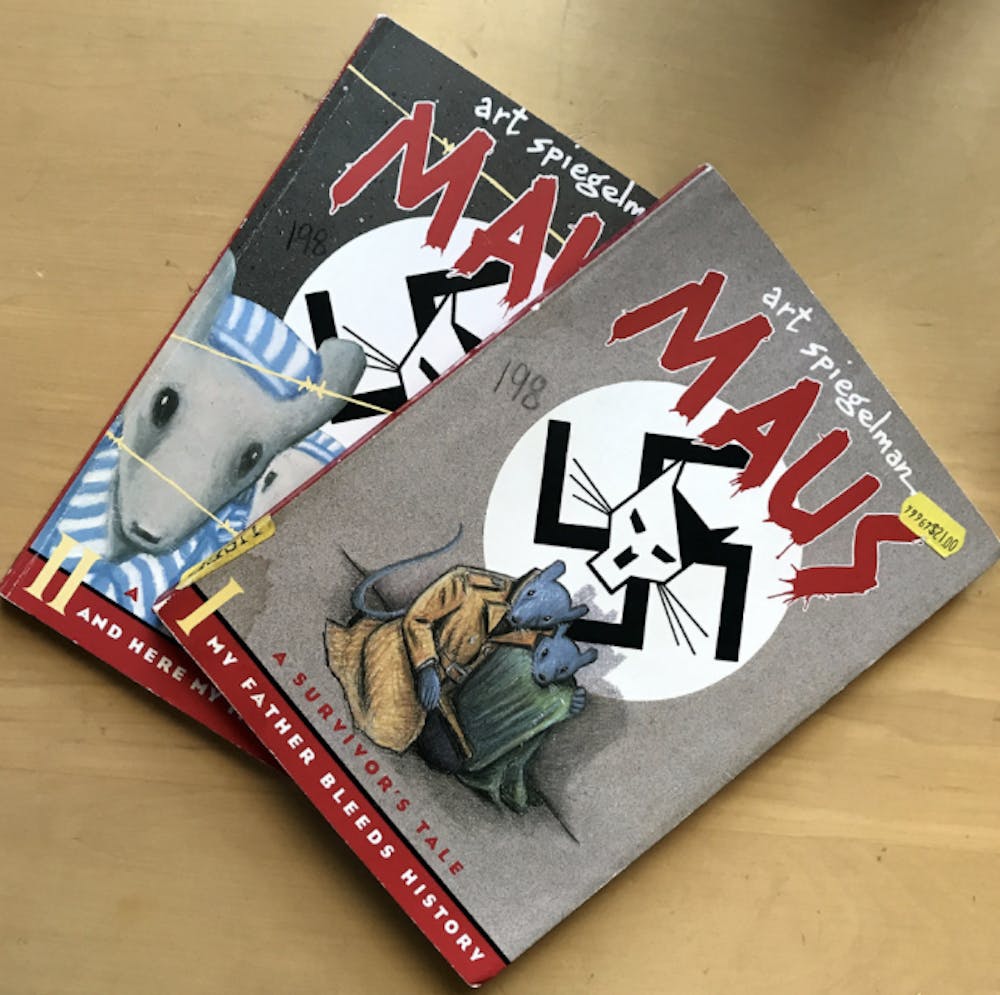A Tennessee school board banned the Pulitzer Prize-winning graphic novel “Maus” on January 10. This graphic novel details the horrific treatment of Jewish people during the Holocaust, with mice representing the Jewish people and the Nazis drawn out as cats. It is widely acclaimed as one of the greatest graphic novels of all time for its haunting storytelling, artwork and the use of cats and mice as instantly recognizable allegories.
According to a statement released on its website, the McMinn County School Board banned this book for its “unnecessary use of profanity and nudity and its depiction of violence and suicide,” and claimed the book was “too adult-oriented for use in our schools.”
That is an incredibly stupid reason to ban a groundbreaking graphic novel that exposes the atrocities committed during the Holocaust from a second-hand account. The school goes on to claim that they “do not diminish the value of ‘Maus’ as an impactful and meaningful piece of literature,” and they do not “dispute the importance of teaching our children the historical and moral lessons and realities of the Holocaust.”
Sure.
Of course they don’t dispute the importance of teaching children about the Holocaust. By all means, ban one of the most important retellings of that event just because the mice are nude for a couple of pages. Ban the book because it depicts violence and suicide — you know, something that Jewish people absolutely didn’t experience in the internment camps.
You cannot recount the Holocaust properly without exposing all of the horrific elements of it. That is a fact. If you downplay the atrocity even a tiny bit, you are not properly educating students about the event. Banning “Maus” is a blatant effort to downplay the Holocaust, even if the schoolboard is adamant that they are still doing justice to their teachings of the tragedy.
Beyond “Maus,” book bans have swept the nation at an unprecedented rate, targeting books that discuss sex, gender identity and race. Books like “To Kill a Mockingbird” have been challenged for years for its depiction of race and racism. More recently, books discussing LGBTQ+ issues, such as “Queer Eye,” have been targeted, according to the New York Times.
These proposed book bans, some of which have already been passed, are sickening.
These books promote the discussion of important issues and topics. If the banning of “Maus” represents an effort to make events like the Holocaust less important, the banning of books that discuss race, identity and history are meant to diminish critical thinking about one’s self, country and that country’s racist, sexist and homophobic history. Literature like “To Kill a Mockingbird” should not be banned — in fact, it should be a required reading for its historical portrayal of a racist south and a legal system designed to benefit white people and prevent African Americans from receiving justice.
As for books that discuss identity, gender and sexuality, I see no reason to ban them beyond simple homophobia. As a queer woman, literature — both fictional and nonfictional — helped me to understand who I was and helped me love myself. I would argue that banning such literature is actively dangerous for queer youth, who are already four times more likely to consider or attempt suicide than their straight peers, according to the Trevor Project.
Why would we try to take away resources for these teens and tweens? Why would we actively try to suppress a conversation about identity and what it means to be an LGBTQ+ American?
Banning books should be banned itself.
Students and teens are intelligent. They can understand topics like race, gender and oppression and they certainly deserve the opportunity to learn about such topics without having to bend over backwards looking for a banned book. Instead of banning books like “To Kill a Mockingbird” or “Maus,” recommend them to students at the very least.
Promote discussions about hard topics instead of stifling them.
Work to create a more inclusive and conversational book scene, and you get a more inclusive and conversational country and world. Book bans do nothing but harm inclusivity and marginalize groups further.







